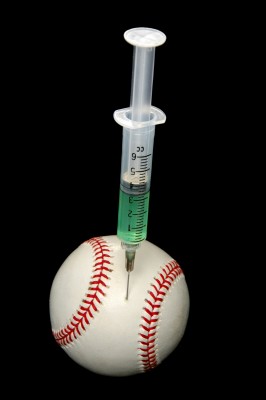
The game I love is irreparably harmed.
With 13 names added to the lists of cheaters and liars, the specter of PEDs looms larger than ever. The carnage is not just the worth of the guilty, or their isolated reputations.
Remember that sense of wonderment when, say, Cecil Fielder hit 51 in 1991? Go further back to George Foster hitting 52 in 1977.
We’ll never have it cleanly again. That’s unquestionably the greatest casualty in all of this.
Growing up, one of my favorite baseball trivia questions was this: Who are the only five men to hit 50 or more homers in a season twice. Until the late 1990s, the answer was Ruth, Mays, Mantle, Jimmy Foxx and the oft-overlooked Ralph Kiner.
Now, that list is nine. Sammy Sosa hit more than 60 three different times. There were 16 seasons of 50 or more homers between 1900 and 1995. There have been 26 in the 18 years since.
Now, in conversation or watching a game, praise a power hitter. See how fast the “juicing” rejoinder comes.
It comes from a friend, from a fan, or in your own mind. In my case it comes from a Twitter follower, a texter to the radio show, a co-host, a producer.
I can’t fight them on it. Truly.
Cynicism has been rewarded, time and time again. And I hate it.
I once argued passionately to credit Jose Bautista for the work he did with hitting coach Dwayne Murphy in Toronto. This lifelong power prospect and (to that point) bust started to swing earlier and pull absolutely everything.
He worked, trusted and rebuilt his approach. You can read all about it if you want.
But no one wants to hear it. Most would much rather scream “roids” and end the discussion.
Chris Davis, a lifelong power prospect and bust, has become more patient (though his plate discipline stats of late have come back to earth), and he says he has matured in Baltimore. You can read all about if you want.
Most aren’t interested.
One friend posted on social media that he “can’t wait until Chris Davis gets exposed.”
This is the emotional damage baseball has wrought upon itself.
The innocent are no doubt being victimized by this, daily. And we don’t know who they are.
I was mad about steroids for years, with a righteous anger to find the wicked, demonize them and safely return to praising the clean.
The rage is gone. Resignation has set in. This is not a good prism by which to view something you love.
So by what method could you rediscover that sense of wonder?
•Shut down every interaction with the “roids!” screamers and bury your head in the sand? We can’t do that; so many shamefully did it in 1998 and beyond.
•Abandon the appreciation of the home run? I greatly appreciate pitching, diving catches, triples, opposite-field singles and perfect cutoff throws. The problem is, the longball is pleasing.
•Accept that everyone is conceivably cheating and therefore still credit those who are clearly better than the rest? I’m not quite ready for that last option, though it seems in some ways the safest.
Joy might be rekindled with pure unabashed skepticism.
What we have to do is this: Know the stories of the athletes we watch. Understand the genuine talent, efforts and improvement that are sometimes evident.
A light bulb that went on is not always some fabricated myth. A healthier mindset is not always some fraudulent cover.
Are there drugs involved? How can anyone really argue against the possibilities?
All I can argue for is the full picture.
I hope the testing catches up with the users in a way that allows trust to bloom again.
I hope improvement gets acknowledged, even amid the doubts.
And I hope our relationship with the game gets easier.




